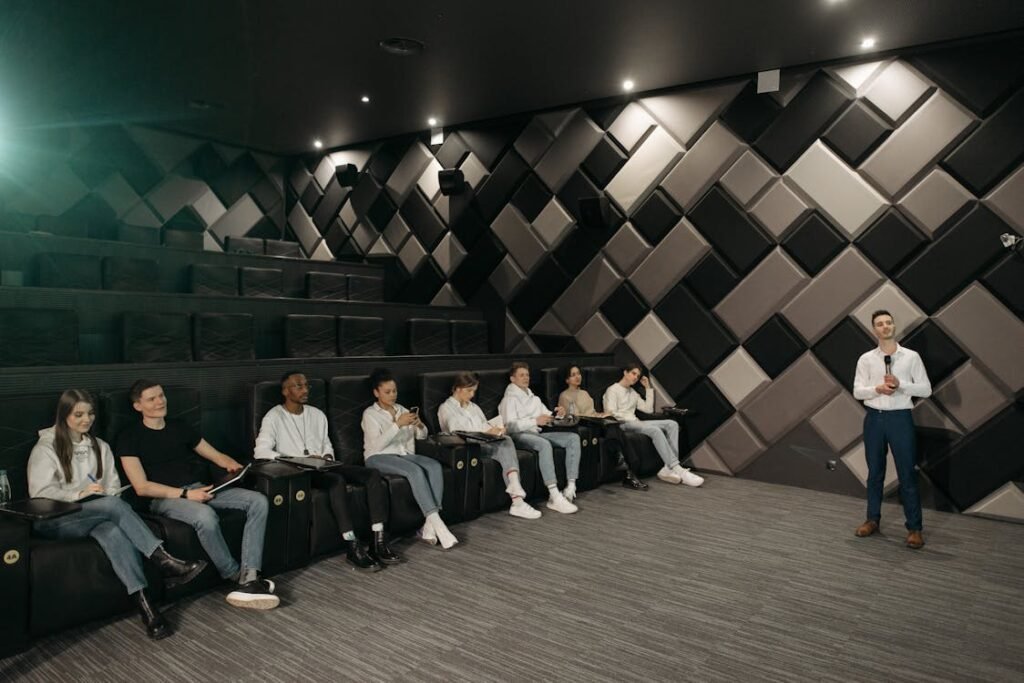The United Nations Convention on the Rights of Persons with Disabilities (UNCRPD) is one of the most important international agreements for people with disabilities. It was adopted in 2006 and has changed how countries, including India, approach disability rights. This convention ensures that people with disabilities have the same rights as everyone else, from access to education and employment to healthcare and social inclusion.
India ratified the UNCRPD in 2007, which means it agreed to follow its principles and make necessary legal changes. Since then, the country has made significant progress in disability rights through new laws and policies. However, challenges still exist in making these rights a reality for everyone.

How the UNCRPD Shaped Indian Disability Laws
India’s Commitment to the UNCRPD
When India ratified the UNCRPD in 2007, it took on a responsibility to make its laws align with the principles of the convention. This was a crucial moment because, for years, disability laws in India were outdated and lacked a strong rights-based approach.
Before the UNCRPD, disability was often seen as a matter of charity rather than a question of equal rights. The convention changed this perspective by establishing that people with disabilities should have full participation in society, just like everyone else.
One of the major expectations from the UNCRPD was for countries to remove discriminatory laws and create policies that promote inclusion.
India responded to this by drafting new legislation, updating existing laws, and strengthening the rights of persons with disabilities across different areas of life.
The most significant change came in 2016 when the Rights of Persons with Disabilities Act (RPWD Act) was passed, replacing the outdated Persons with Disabilities Act of 1995.
The Rights of Persons with Disabilities Act, 2016
The RPWD Act of 2016 was a direct outcome of India’s commitment to the UNCRPD. This law expanded the definition of disability from seven categories to twenty-one, ensuring that more people could benefit from legal protections.
It covered disabilities such as cerebral palsy, autism, Parkinson’s disease, and multiple sclerosis, which were previously not recognized. By widening this scope, the law brought more individuals under the umbrella of disability rights.
Another major shift was the move from a medical model of disability to a social model. Earlier, laws focused on what a person could not do because of their disability.
The new approach recognized that barriers in society, not just physical impairments, were the real challenge. This meant that the focus had to shift towards removing obstacles in education, employment, healthcare, and accessibility rather than just providing medical solutions.
A key provision of the RPWD Act is its emphasis on accessibility. The law mandates that public spaces, transportation, and digital platforms must be designed in ways that allow persons with disabilities to use them without difficulty.
This aligns with the UNCRPD’s core principle of ensuring full participation in society. However, despite the law’s strong stance, implementation has been slow, and many public places in India still remain inaccessible.
Education and Employment Rights under the RPWD Act
The right to education was another major area of improvement under the RPWD Act. Schools and universities are required to provide inclusive education by making necessary accommodations, such as braille materials, sign language interpretation, and special educators.
The law also discourages discrimination in admissions, ensuring that children with disabilities have equal opportunities to learn. However, in reality, many educational institutions still struggle to provide truly inclusive environments.
Employment rights were also strengthened under this act. The government increased the reservation for persons with disabilities in government jobs from 3% to 4%. It also extended these benefits to the private sector by encouraging companies to hire more employees with disabilities.
Employers are required to provide reasonable accommodations, such as assistive devices and flexible working hours, to ensure an inclusive workplace. Despite these legal advancements, many businesses are yet to fully embrace disability inclusion, and persons with disabilities continue to face discrimination in hiring and career growth.
Challenges in Implementation
While the RPWD Act brought significant legal changes, its enforcement has faced many challenges. One major issue is the lack of awareness among both people with disabilities and the authorities responsible for implementing the law.
Many individuals are unaware of their rights, which makes it difficult for them to demand necessary accommodations. Similarly, government agencies and private institutions often fail to comply with the accessibility standards set by the law.
Another major challenge is the slow pace of change. Even though the law mandates accessibility in public spaces, transportation, and digital platforms, real change has been sluggish.
Many buildings, including government offices and hospitals, remain inaccessible, making it difficult for persons with disabilities to carry out daily activities.
The struggle for better enforcement of disability rights continues, but organizations like Robobionics play a vital role in bridging the gap.
By offering affordable and advanced prosthetic solutions like Grippy™, Robobionics helps individuals regain mobility and independence, ensuring they can participate more actively in society.
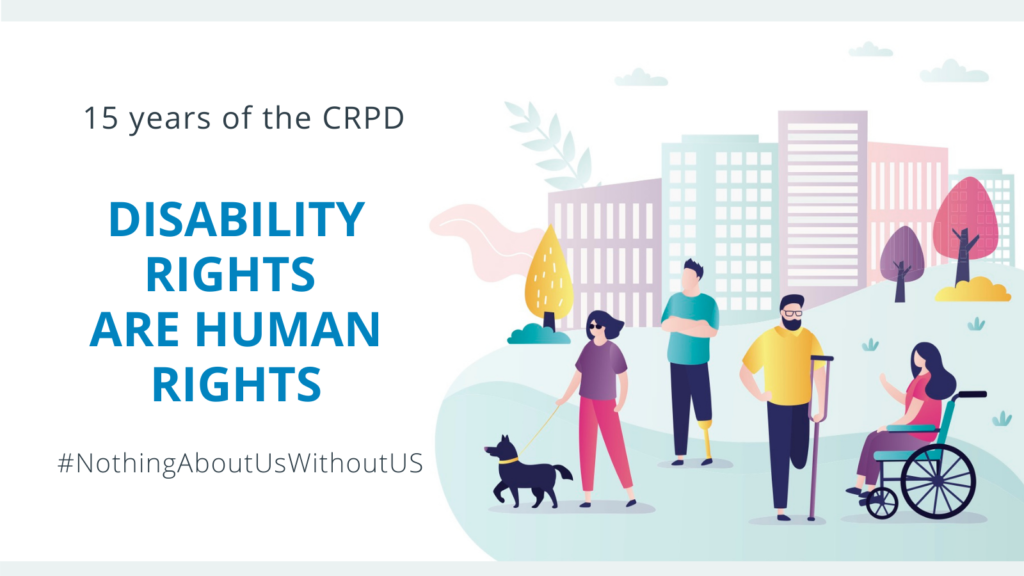
Understanding the UN Convention on the Rights of Persons with Disabilities
The United Nations Convention on the Rights of Persons with Disabilities (UNCRPD) is a landmark treaty that aims to protect and promote the rights of people with disabilities.
Before this convention, disability was often seen as a medical issue rather than a human rights concern. The UNCRPD changed this perspective by emphasizing that people with disabilities have the same fundamental rights as everyone else.
This shift has had a profound impact on laws across the world, including in India.
Core Principles of the UNCRPD
The UNCRPD is built on key principles that promote dignity, equality, and accessibility. It asserts that people with disabilities should have the right to live independently, participate fully in society, and make their own choices.
Governments that ratify the convention must ensure that discrimination is eliminated and that all public services, including education, healthcare, and employment, are accessible.
Another major principle of the convention is inclusion. This means that instead of isolating or treating people with disabilities differently, societies should remove barriers so that they can fully participate in everyday life.
Whether it’s a student with a disability attending school, a professional working in an office, or a person navigating public transportation, the convention insists that they should have equal opportunities.
India ratified the UNCRPD in 2007, making a commitment to align its laws and policies with these principles. This was a crucial step toward recognizing disability rights at the national level and ensuring that legal frameworks evolved to protect these rights.
The impact of this ratification has been seen in significant legal reforms in India, aimed at improving accessibility, inclusion, and protection against discrimination.
India’s Commitment to the UNCRPD
When India ratified the UNCRPD, it acknowledged that people with disabilities are equal members of society. However, simply signing an international treaty is not enough.
Countries must take action by updating their laws and policies to reflect these new commitments. For India, this meant revising outdated laws and introducing new ones to ensure that people with disabilities receive the protections and opportunities they deserve.
One of the most significant changes came in 2016 when India passed the Rights of Persons with Disabilities Act (RPWD Act).
This law replaced the outdated 1995 Persons with Disabilities Act and expanded the definition of disability to cover more conditions, ensuring broader legal protection.
The RPWD Act introduced stricter measures against discrimination and established penalties for violations. It also reinforced the need for accessible infrastructure, inclusive education, and equal employment opportunities.
Another major development influenced by the UNCRPD is the growing focus on assistive technology and rehabilitation.
Organizations like Robobionics play a crucial role in this space by providing advanced prosthetics, such as Grippy™, which help people regain independence and confidence.
As India works towards fulfilling its UNCRPD commitments, technological advancements in prosthetics and rehabilitation have become essential for bridging the gap between policy and real-life accessibility.

Legal Reforms in India After the UNCRPD
After ratifying the UNCRPD in 2007, India needed to ensure its laws matched the principles of the convention. The country had existing disability laws, but they were outdated and did not fully protect the rights of people with disabilities.
The ratification led to significant legal reforms, with the most notable being the introduction of the Rights of Persons with Disabilities Act (RPWD Act) in 2016.
The Rights of Persons with Disabilities Act, 2016
The RPWD Act was a major step forward in strengthening disability rights in India. One of its most important changes was expanding the definition of disability.
Earlier laws recognized only seven types of disabilities, but the new act increased this number to twenty-one. This broader definition ensured that more people, including those with conditions like autism, Parkinson’s disease, and blood disorders, were covered under legal protections.
A key feature of the RPWD Act is its focus on accessibility. The law requires both public and private institutions to make their facilities accessible to people with disabilities.
This applies to buildings, transportation, education, and workplaces. Government agencies must ensure that public spaces are designed so that people with disabilities can move freely and independently.
Schools and colleges must also provide inclusive education, ensuring that children with disabilities are not denied admission based on their condition.
The law also strengthens employment rights. It mandates that government organizations reserve at least four percent of jobs for people with disabilities, an increase from the previous three percent.
Private companies are encouraged to create inclusive workplaces, and those that comply with accessibility guidelines can receive government incentives.
The act also lays out strict anti-discrimination policies, ensuring that people with disabilities are treated fairly at work, in education, and in public life.
A crucial aspect of the RPWD Act is the introduction of penalties for non-compliance. Any person or institution that discriminates against a person with disabilities can face fines and legal action.
This is a significant step toward ensuring that disability rights are taken seriously and that violations are met with consequences.
Other Legal Developments and Policies
Apart from the RPWD Act, other legal and policy changes have taken place to align Indian law with the UNCRPD. The Accessible India Campaign, launched in 2015, aims to improve accessibility across the country.
It focuses on making public buildings, transportation, and digital services more accessible to people with disabilities. The campaign also encourages companies to create assistive technologies that help improve mobility and independence.
Indian courts have also played an important role in upholding disability rights. Several landmark rulings have reinforced the principles of equality and non-discrimination.
Courts have ruled in favor of providing accessible education, ensuring job reservations are properly implemented, and making public services more inclusive.
Legal reforms have significantly improved the rights of people with disabilities in India, but challenges remain. Implementation is often slow, and many buildings and services are still not fully accessible.
Awareness about disability rights is also lacking in many parts of the country. While laws provide a strong foundation, continued efforts are needed to ensure these rights are fully realized.
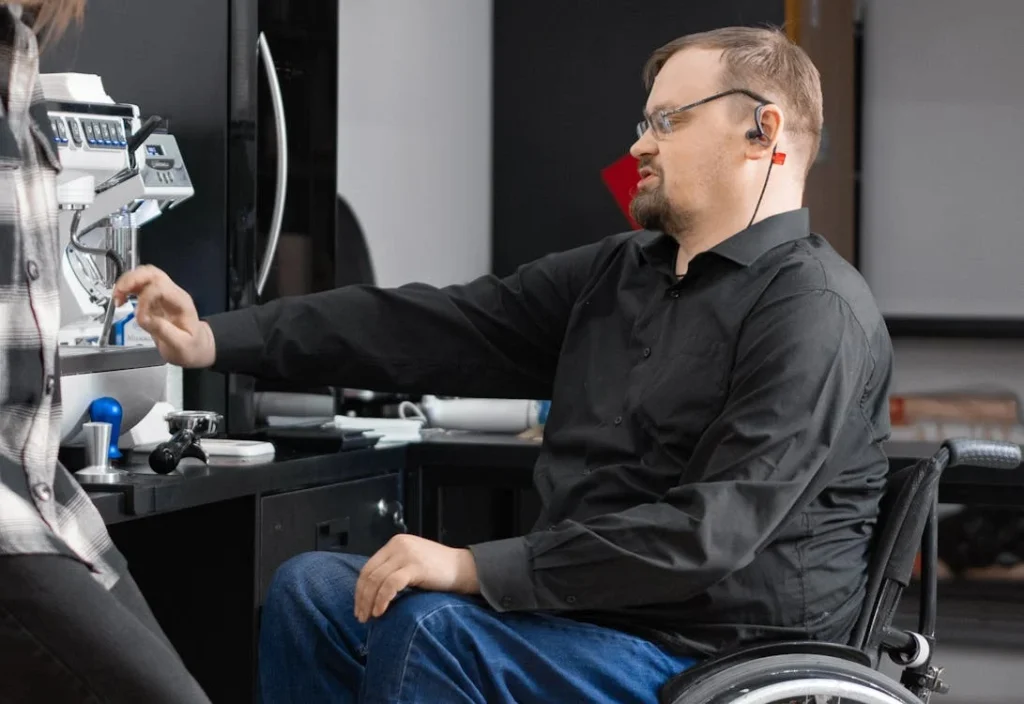
Challenges in Implementing the UNCRPD in India
While India has made significant progress in aligning its laws with the UNCRPD, implementation remains a major challenge. Laws and policies are only effective if they translate into real-life improvements for people with disabilities.
Despite strong legal frameworks like the Rights of Persons with Disabilities Act, 2016, many barriers continue to prevent full inclusion and accessibility.
Lack of Awareness and Social Stigma
One of the biggest challenges in implementing the UNCRPD is the lack of awareness. Many people, including those with disabilities, are unaware of their rights.
Employers, educators, and even government officials often do not fully understand their responsibilities under the law. This leads to poor enforcement of disability rights, leaving many individuals without the support they are legally entitled to.
Social stigma also plays a significant role in limiting opportunities for people with disabilities. In many parts of India, disability is still viewed as a burden, and individuals with disabilities face discrimination in education, employment, and social life.
Schools may refuse admission to children with disabilities despite legal protections. Employers may hesitate to hire them due to misconceptions about their capabilities.
These societal attitudes make it harder for people with disabilities to access the opportunities and resources they need.
Inaccessible Infrastructure and Public Services
Despite legal requirements for accessibility, many public spaces, transportation systems, and government offices remain difficult for people with disabilities to navigate.
Ramps, elevators, and accessible restrooms are still missing in many places. Public transportation, including buses and trains, is often not designed to accommodate people with mobility impairments.
Even digital accessibility is an issue, as many government websites and online services are not user-friendly for people with visual or hearing impairments.
The Accessible India Campaign, launched in 2015, aims to improve this situation by making public spaces more inclusive. However, progress has been slow.
Many buildings and transportation systems still lack proper accessibility features, and enforcement of accessibility standards remains weak.
Employment Barriers and Economic Challenges
Finding employment remains one of the biggest challenges for people with disabilities in India. Even though the RPWD Act mandates job reservations in government institutions, the implementation is inconsistent.
Many job postings do not accommodate people with disabilities, and workplaces often lack the necessary infrastructure to support them.
Private companies, while encouraged to hire people with disabilities, are not legally required to do so. As a result, many individuals struggle to find meaningful employment, leading to economic dependence and reduced quality of life.
Self-employment and entrepreneurship could be solutions, but access to financial support and business opportunities is often limited.
Organizations like Robobionics are working to bridge this gap by offering assistive technologies that empower individuals to regain independence.
Advanced prosthetic solutions like Grippy™ enable people with limb loss to perform daily activities and pursue careers, breaking down barriers to economic participation.
Inconsistent Policy Implementation Across States
India’s federal structure means that while national laws provide a framework, individual states are responsible for implementing disability policies.
This leads to inconsistencies in how laws are applied across the country. Some states have made significant progress in making education, employment, and public spaces more inclusive, while others lag behind due to a lack of resources or political will.
Coordination between central and state governments is essential for effective implementation. Without proper monitoring and accountability, disability rights may remain a promise on paper rather than a reality for millions of people.
The Way Forward
To fully implement the UNCRPD in India, stronger efforts are needed at multiple levels. Awareness campaigns can educate people about disability rights and reduce stigma.
Strict enforcement of accessibility laws can improve infrastructure and public services. Encouraging businesses to create inclusive workplaces can enhance employment opportunities.
Most importantly, people with disabilities must be included in policy-making processes to ensure that laws truly reflect their needs.
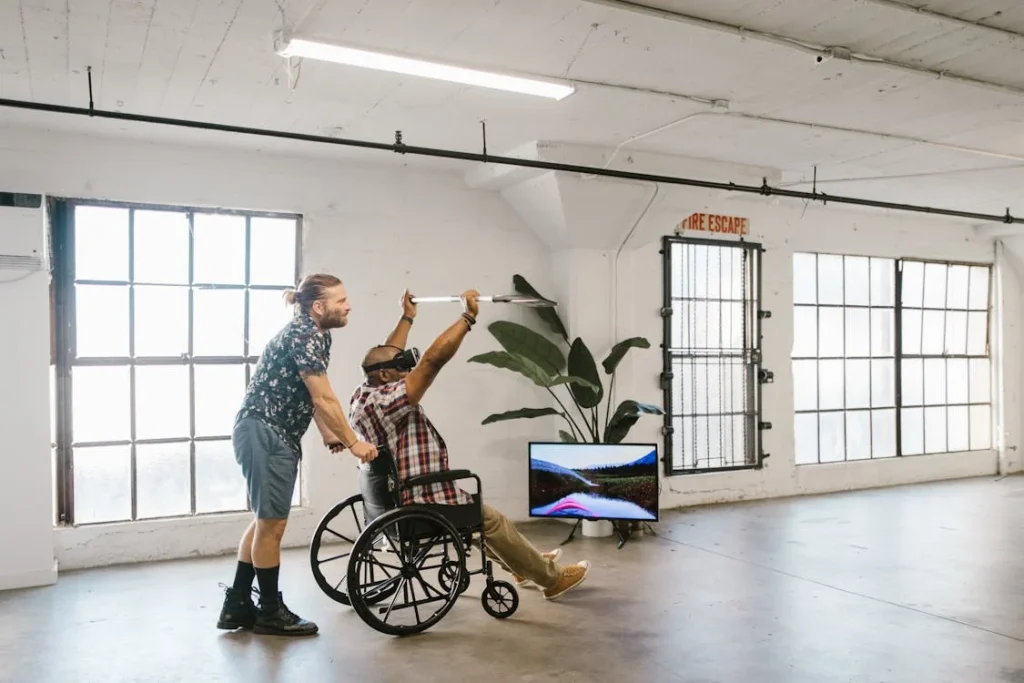
The Role of Technology and Innovation in Advancing Disability Rights
While legal reforms and policies are essential in ensuring the rights of persons with disabilities, technology and innovation play a crucial role in making these rights a reality.
The UNCRPD emphasizes the importance of accessibility, inclusion, and independent living, and advancements in assistive technology have become a key driver in achieving these goals.
In India, where infrastructure and traditional support systems often fall short, innovations in prosthetics, mobility aids, and digital accessibility tools are transforming the lives of people with disabilities.
Assistive Technology and Prosthetics
One of the biggest challenges faced by people with disabilities in India is the lack of affordable and effective assistive devices.
Many imported prosthetics and mobility aids are expensive and not easily accessible to the average person. This is where Indian innovations, such as Robobionics’ Grippy™, have made a significant impact.
Grippy™ is a 3D-printed bionic hand designed to be lightweight, ergonomic, and easy to use. Unlike traditional prosthetic solutions, which can be heavy and uncomfortable, Grippy™ provides users with better control and adaptability, helping them regain independence in their daily activities.
The use of 3D printing also makes these prosthetics more affordable, ensuring that more people can access high-quality assistive devices without financial strain.
Beyond prosthetics, innovations in mobility aids such as smart wheelchairs and exoskeletons are also improving the quality of life for individuals with disabilities.
These devices enhance movement, reduce dependency on caregivers, and open up new opportunities for employment and social participation.
Digital Accessibility and Inclusive Technology
The digital age has brought new opportunities for people with disabilities, but it has also introduced new barriers.
Many websites, mobile apps, and online services are not designed to be accessible to people with visual, hearing, or cognitive impairments. This limits their ability to access important information, apply for jobs, or engage in online education.
The UNCRPD stresses the importance of digital inclusion, and India has taken steps to improve accessibility in the digital space. Government initiatives now require public websites and services to be compliant with accessibility guidelines.
Companies are also encouraged to design apps and platforms that accommodate diverse users, including those who rely on screen readers, voice commands, and other assistive tools.
Artificial intelligence (AI) and machine learning are further enhancing digital accessibility.
AI-powered voice assistants, real-time captioning software, and adaptive user interfaces are helping bridge the gap for people with disabilities, allowing them to participate more actively in the digital economy.
The Future of Disability-Inclusive Innovation
Technology is not just a tool for accessibility—it is a pathway to empowerment. As India continues to align with the UNCRPD, investment in assistive technology and inclusive design will be key to creating an environment where people with disabilities can thrive.
Collaboration between the government, private sector, and organizations like Robobionics will be essential in driving innovation forward.
By combining legal reforms with cutting-edge technology, India can move closer to a society where disability is no longer a barrier to independence, employment, and social participation.
The future lies in not just meeting accessibility standards, but exceeding them to create a world that truly embraces inclusion.
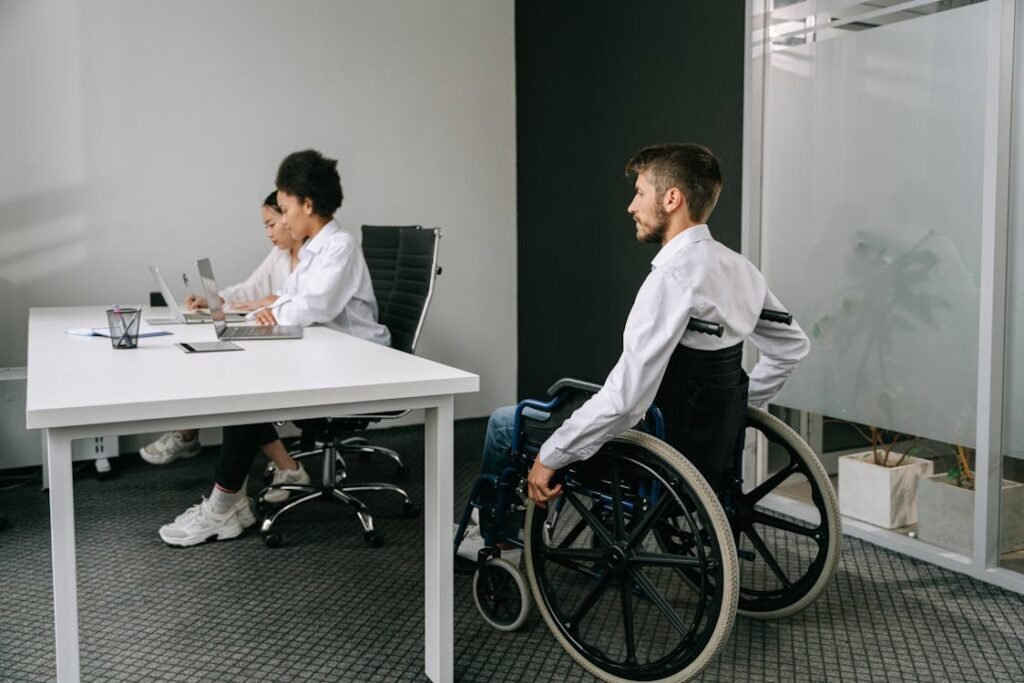
The Path Forward: Strengthening India’s Commitment to the UNCRPD
India has taken significant steps to align its laws and policies with the UNCRPD, but there is still a long way to go. The legal framework is in place, but real change happens when laws are effectively enforced, mindsets evolve, and accessibility becomes a natural part of society.
Strengthening India’s commitment to disability rights requires action in multiple areas, from better policy implementation to technological advancements and public awareness campaigns.
Enhancing Policy Implementation and Enforcement
While the Rights of Persons with Disabilities Act, 2016, provides strong legal protections, enforcement remains inconsistent. Many public and private institutions fail to comply with accessibility requirements, and violations often go unpunished.
To strengthen implementation, the government must establish stricter monitoring mechanisms and hold organizations accountable for non-compliance.
One way to achieve this is by setting up independent regulatory bodies that oversee disability rights enforcement. These agencies can conduct audits, issue penalties, and ensure that accessibility guidelines are followed across all sectors.
Training programs for government officials, employers, and service providers can also improve understanding of disability laws and their importance.
Improving Infrastructure and Public Services
Accessibility is at the heart of the UNCRPD, yet many parts of India still lack basic infrastructure to accommodate people with disabilities.
Public buildings, transportation systems, and even government offices often remain inaccessible, despite legal mandates. The Accessible India Campaign has made some progress, but large-scale improvements are still needed.
Urban planning must prioritize universal design principles to create spaces that are naturally inclusive. Ramps, elevators, tactile paths, and accessible public transportation should not be afterthoughts but fundamental design elements.
The government should also work with private businesses to ensure that commercial spaces, workplaces, and recreational facilities follow accessibility guidelines.
Beyond physical infrastructure, accessibility must extend to digital services. Many government websites and online platforms still lack features like screen reader compatibility and voice navigation.
As India moves towards a digital economy, ensuring that people with disabilities can fully participate is essential.
Promoting Inclusive Education and Employment
Education is a powerful tool for empowerment, yet children with disabilities often face barriers in accessing quality education.
Schools and universities must adopt inclusive education practices, ensuring that students with disabilities receive the necessary support, such as assistive devices, sign language interpreters, and specialized teaching methods.
Teacher training programs should also include disability awareness to create a more supportive learning environment.
Employment opportunities for people with disabilities remain limited, despite legal job reservations. While government organizations have quotas, the private sector is not obligated to follow the same requirements.
Encouraging businesses to hire inclusively through tax benefits, subsidies, and awareness campaigns can lead to greater workforce participation.
Companies must also invest in workplace accessibility, ensuring that employees with disabilities have the necessary tools and support to thrive.
Changing Perceptions and Raising Awareness
Laws and policies can only go so far if societal attitudes remain unchanged. Disability rights must be integrated into mainstream conversations to challenge stereotypes and reduce stigma.
Media, education, and advocacy campaigns can play a significant role in reshaping public perceptions.
Representation in film, television, and advertising can help normalize disability and highlight the capabilities of people with disabilities. Public awareness initiatives can educate communities on the importance of inclusion and the need to respect disability rights.
Schools and workplaces can also conduct disability awareness programs to foster empathy and understanding.
The Role of Organizations Like Robobionics
While legal and policy changes are essential, real impact comes from organizations working on the ground to improve lives.
Companies like Robobionics contribute to India’s progress by developing innovative prosthetics and assistive technologies that restore independence and dignity.
Grippy™, for example, is more than just a prosthetic hand—it is a symbol of empowerment. By making advanced bionic solutions accessible and affordable, Robobionics ensures that people with disabilities can actively participate in society, pursue careers, and lead fulfilling lives.
The company’s commitment to gamified rehabilitation also bridges the gap between technology and user adaptation, ensuring that prosthetic users can regain function more effectively.
A Future of True Inclusion
India’s journey towards full compliance with the UNCRPD is ongoing. While progress has been made, true inclusion will only be achieved when disability rights are fully integrated into every aspect of society.
This requires collaboration between the government, private sector, advocacy groups, and individuals.
By strengthening policy enforcement, improving infrastructure, promoting inclusive education and employment, and challenging societal perceptions, India can create a future where disability is not a barrier to success.
With the support of innovative organizations like Robobionics, people with disabilities can access the tools and opportunities they need to lead independent and meaningful lives.
The vision of the UNCRPD is a world where disability does not define a person’s potential. With sustained efforts, India can move closer to making this vision a reality.
Conclusion
The UNCRPD has been a turning point in shaping disability rights worldwide, and India has taken significant steps to align its laws with its principles. The Rights of Persons with Disabilities Act, 2016, and initiatives like the Accessible India Campaign have laid a strong foundation. However, challenges remain in enforcement, accessibility, employment, and societal attitudes.
Real inclusion goes beyond legal reforms—it requires cultural change, better policy implementation, and innovative solutions. Organizations like Robobionics play a crucial role in this transformation by providing advanced prosthetic solutions like Grippy™, empowering individuals with disabilities to lead independent lives.
India’s journey towards full compliance with the UNCRPD is ongoing, but with stronger enforcement, technological advancements, and a shift in public perception, a truly inclusive society is possible. The goal is not just to meet legal requirements but to create an environment where people with disabilities can thrive without barriers. By working together, we can ensure that disability rights are not just protected on paper but realized in everyday life.



